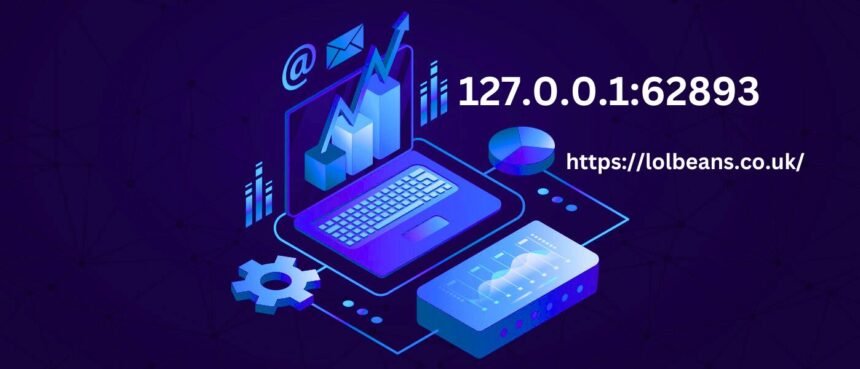In the realm of computer networking, 127.0.0.1:62893 IP addresses play a crucial role in facilitating communication between different devices. One special IP address that every network professional or computer science student should be familiar with is 127.0.0.1. Often referred to as the “localhost,” this address is used by a computer to communicate with itself. It’s part of the IPv4 network standard and is instrumental in network testing and software development. Additionally, the inclusion of a port number, like 127.0.0.1:62893, specifies a communication gateway specific to software applications running on the computer. This article will explore the loopback address, its purposes, and how port numbers are integrated into network communications.
What is 127.0.0.1:62893?
127.0.0.1:62893 is designated as the loopback address in the IPv4 networking protocol. A loopback address is a type of IP address that is used to test the network interface on a local system. By directing traffic to this address, the network stack is instructed to loop the traffic back to the originating machine. The main advantage of this is that it allows for network software and hardware testing without the need for external network connections. This testing can verify that the system’s network components are functioning correctly without actually transmitting packets outside of the machine.
Port Numbers: Understanding Their Role
Port numbers, such as 127.0.0.1:62893, serve as communication endpoints at the transport layer of the Internet protocol suite. While an IP address helps route the data to the correct machine, a port number routes the data to the correct application or service within that machine. The range of port numbers from 0 to 1023 is known as well-known ports and is reserved for specific services (like HTTP on port 80 or HTTPS on port 443). Ports from 1024 to 49151 are registered ports used by specific applications, and ports from 49152 to 65535 are dynamic or private ports, often used for client-side communication.
Port 127.0.0.1:62893 falls into the category of dynamic or private ports. These ports are typically chosen at random by client applications when establishing outbound connections, making them essential for client-server communications where multiple sessions are needed.
Use Cases of 127.0.0.1 in Software and Network Testing
Developers and network administrators use the loopback address to test software applications and network services without impacting the network or systems. Here are a few common scenarios:
- Development and Testing of Server Applications: Software developers often run server applications on their local machine at 127.0.0.1 to test their functionality before deployment. This allows developers to verify that the software behaves as expected in a controlled environment.
- Network Configuration and Troubleshooting: Network engineers use the loopback address to test network configuration and troubleshoot network issues. By sending ping requests to 127.0.0.1, they can determine whether the TCP/IP stack is installed correctly and functioning.
- Security Assessments: Security professionals might use the loopback interface to test network security configurations, including firewall rules and intrusion detection systems. This ensures that internal safeguards are functioning correctly without exposing the system to external threats.
The Role of Port 62893 in Communication
When a specific port like 127.0.0.1:62893 is used in conjunction with the loopback address, it often pertains to an application or service running locally that listens on this port for connections or data. Here are potential uses:
- Local Web Development: Developers might configure a web server to listen on a non-standard port like 62893 to avoid conflicts with other services and simplify access controls.
- Application Testing: Applications under development might use this port to interact with other software components locally, ensuring that these interactions are confined to the developer’s machine.
Conclusion
Understanding how the loopback address 127.0.0.1:62893 and port numbers like 62893 function is fundamental for those involved in IT and computer science. They not only facilitate efficient and secure network testing but also support robust software development practices. By utilizing these tools, professionals can ensure that their network services and applications operate smoothly before full-scale deployment. This knowledge is invaluable for troubleshooting and optimizing network and application performance, ensuring that systems are robust, secure, and capable of handling real-world operations.






